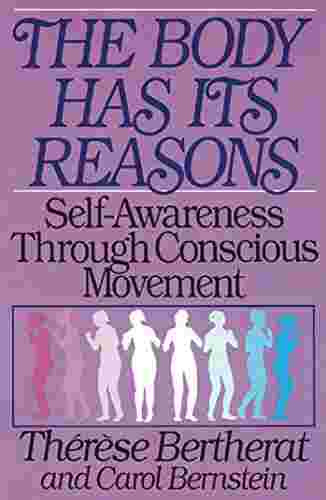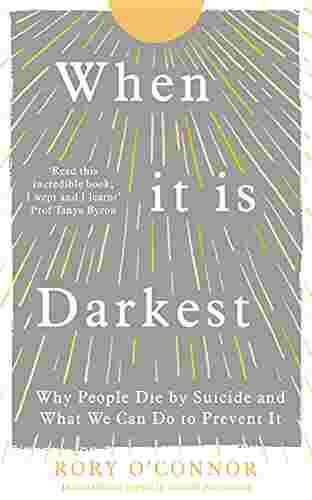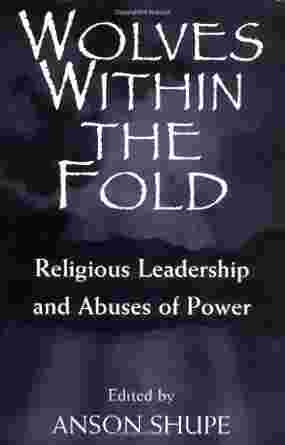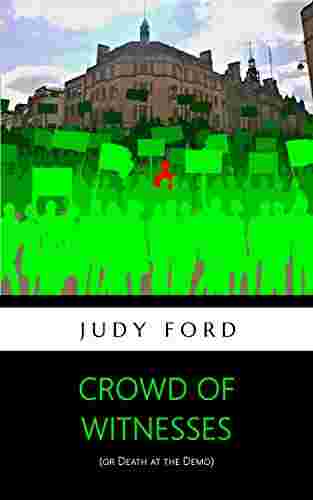Do you want to contribute by writing guest posts on this blog?
Please contact us and send us a resume of previous articles that you have written.
The Dark Side of Religious Leadership: Unveiling the Abuses of Power

In every society, religious leaders hold a position of authority and influence, guiding their followers in matters of faith, morality, and spirituality. These individuals are often seen as role models and sources of guidance in both times of joy and crisis. However, history teaches us that not all religious leaders have used their power for good.
Religious leadership, like any other form of authority, can be susceptible to abuses of power. The allure of control and the trust placed in these leaders can create an environment ripe for corruption, manipulation, and exploitation. In this article, we dive into the dark side of religious leadership, exploring historical and contemporary instances of abuse and the impact it has on individuals and communities.
Understanding the Dynamics of Religious Leadership
To comprehend the abuses of power within religious leadership, it is essential to understand the dynamics surrounding this position. Religious leaders often hold positions of authority within organized religions, serving as spiritual guides and moral authorities. They may possess profound knowledge, charisma, and a perceived connection to a higher power, giving them considerable influence over their followers.
4.1 out of 5
| Language | : | English |
| File size | : | 3827 KB |
| Text-to-Speech | : | Enabled |
| Print length | : | 245 pages |
The trust and vulnerability placed in religious leaders can be both a blessing and a curse. While many leaders utilize their authority responsibly, some succumb to the temptations that power brings, misusing it for personal gain, control, or even justification for immoral actions.
A Historical Perspective on Abusive Religious Leadership
Throughout history, there have been countless instances of abusive religious leadership. Some of the most well-known cases involve cult leaders who manipulated and exploited their followers.
One particularly infamous example is Jim Jones, the leader of the Peoples Temple. Under the guise of a spiritual movement focused on communal living, Jones controlled his followers both physically and psychologically. He eventually led them to a tragic end, orchestrating the mass murder-suicide known as the Jonestown Massacre. This horrifying event demonstrates the extreme consequences of unchecked power and the dangers associated with abusive religious leaders.
Another historical example is the abuse scandals within various religious institutions. The Catholic Church, for instance, has faced widespread allegations of child sexual abuse by priests. These cases highlight the devastating impact of abuses of power, as they not only violate the trust of followers but also leave lasting trauma on the victims.
Contemporary Cases: Shedding Light on Current Abuses
Abuses within religious leadership are not limited to history. The modern world continues to bear witness to instances of power abuses within religious contexts. One prominent case is that of Keith Raniere and his organization, NXIVM.
Raniere, a self-proclaimed spiritual leader, operated a purported self-help organization that used coercive tactics to manipulate and exploit its members. In 2019, Raniere was convicted of multiple crimes, including sex trafficking, racketeering, and forced labor. His actions reveal the dangers of charismatic leaders who misuse their power and prey on vulnerable individuals.
Moreover, cases of financial exploitation within religious contexts are also prevalent. Religious leaders may use their influence to coerce followers into providing significant financial contributions, exploiting their trust and devotion. These cases perpetuate a cycle of manipulation and contribute to the negative perception of religious leadership.
The Impact on Individuals and Communities
The consequences of abusive religious leadership reach far beyond the individuals directly affected. The trust shattered by these abuses shakes the foundation of faith communities, leaving members disillusioned and questioning their beliefs. Such incidents also have a broader societal impact, as they reinforce negative stereotypes about religious institutions and cast doubt on the integrity of all religious leaders.
For victims of abuses, the emotional and psychological scars can be long-lasting. Survivors often face feelings of guilt, shame, and betrayal, struggling to reconcile their faith with the actions of those entrusted with spiritual guidance. Healing from these abuses requires support, understanding, and efforts to hold abusive leaders accountable.
Preventing and Addressing Abuses of Power
Addressing and preventing abuses of power within religious leadership requires a multi-faceted approach. Transparency and accountability are essential in identifying and dealing with cases of abusive behavior.
Religious organizations must establish strong codes of conduct, enforceable policies, and mechanisms to address complaints. Encouraging open dialogue and providing safe spaces for victims to come forward can empower survivors and encourage the reporting of abuses.
Education and awareness play a crucial role in preventing abuses of power. Promoting a culture of informed skepticism, where followers are encouraged to question authority and seek multiple perspectives, can help prevent the blind trust that often enables abusive leaders.
Religious leadership, when exercised responsibly, can bring immense positivity, guidance, and support to individuals and communities. However, like any position of authority, religious leadership is susceptible to the abuses of power that stem from human fallibility.
Unveiling these dark aspects of religious leadership is not meant to discredit all religious leaders or institutions. Rather, it serves as a reminder that vigilance and accountability are necessary to protect against abuses of power.
By shining a light on the abuses perpetrated by religious leaders, we can work towards creating a world where the pursuit of spiritual growth and guidance goes hand in hand with integrity, empathy, and justice.
4.1 out of 5
| Language | : | English |
| File size | : | 3827 KB |
| Text-to-Speech | : | Enabled |
| Print length | : | 245 pages |
Wolves within the Fold is the first collection of new articles dealing with abuse of authority by religious leaders and the victimization of their parishioners.
The power of religion as a symbolic, salvationÐpromising enterprise resides in its authority to create and shape reality for believers and command their obedience. This power can inspire tremendous acts of human kindness, charity, compassion, and hope. But witch hunts, inquisitions, crusades, and pogroms show us how religious authority can be used for far darker purposes. This abuse of power by religious authorities at the expense of their followers is termed clergy malfeasance by editor Anson Shupe and examined by the contributors to Wolves within the Fold.
The essays provide an innovative examination of behavior that is sometimes illegal and always unethical, sometimes punished but often not. Topics range from a cultural study of Aum Shinrikyo, the Japanese apocalyptic group now infamous for releasing lethal gas into the Tokyo subway system, to a sociological analysis of financial scandals among evangelical religious groups. Groups analyzed include the Roman Catholic Church, Protestant denominations, televangelists, and the Hare Krishnas.

 Corbin Powell
Corbin PowellSmash Period Pain: The Ultimate Guide to Period Pain...
Period pain, also known as dysmenorrhea, is a...

 Herman Melville
Herman MelvilleTransform Your Body And Maximize Your Performance With...
Are you tired of spending hours in the gym...

 Edison Mitchell
Edison MitchellThe Shocking Exodus: Why Millions of Catholic Priests and...
The Catholic Church has long been an...

 Gary Reed
Gary ReedUnveiling the Power of Protection Crystals: Recovering...
In the realm of ancient Celtic wisdom, the...

 Hugh Reed
Hugh ReedThe Body Has Its Reasons - Unlocking the Secrets of Our...
Have you ever wondered why your body...

 Jesus Mitchell
Jesus MitchellThe Shocking Truth Behind Why So Many People Die By...
Every year, millions of lives are lost to...

 Jeff Foster
Jeff FosterThe Dark Side of Religious Leadership: Unveiling the...
In every society, religious leaders hold a...

 Lawrence Bell
Lawrence BellHow To Talk With Your Subconscious Mind And Daydream Your...
Do you ever feel like your...

 Trevor Bell
Trevor BellUnraveling the Mystery: Death At The Demo Bernie...
Prepare to plunge into a thrilling world of...

 Ken Simmons
Ken SimmonsThe Complete Nyingma Tradition: From Sutra to Tantra to...
In the realm of Tibetan Buddhism, the...

 Fred Foster
Fred Foster7 Natural Remedies to Effectively Treat Palmoplantar...
Are you tired of dealing with the...

 Bradley Dixon
Bradley DixonThe Fascinating Reality of Mediumship: Exploring Life in...
Have you ever wondered what lies beyond our...
Light bulbAdvertise smarter! Our strategic ad space ensures maximum exposure. Reserve your spot today!

 Langston HughesFrom The Laboratory To Clinical Practice Woodhead Publishing In Biomedicine...
Langston HughesFrom The Laboratory To Clinical Practice Woodhead Publishing In Biomedicine...
 Dale MitchellMind Guide To Parkinson Disease: Parkinson Foundation Provides Comprehensive...
Dale MitchellMind Guide To Parkinson Disease: Parkinson Foundation Provides Comprehensive... Jack ButlerFollow ·18.2k
Jack ButlerFollow ·18.2k Greg FosterFollow ·4.4k
Greg FosterFollow ·4.4k Galen PowellFollow ·8.5k
Galen PowellFollow ·8.5k Donovan CarterFollow ·18.4k
Donovan CarterFollow ·18.4k Nathaniel PowellFollow ·4.4k
Nathaniel PowellFollow ·4.4k Dwayne MitchellFollow ·4.4k
Dwayne MitchellFollow ·4.4k Vince HayesFollow ·11.6k
Vince HayesFollow ·11.6k Adam HayesFollow ·7.8k
Adam HayesFollow ·7.8k





































